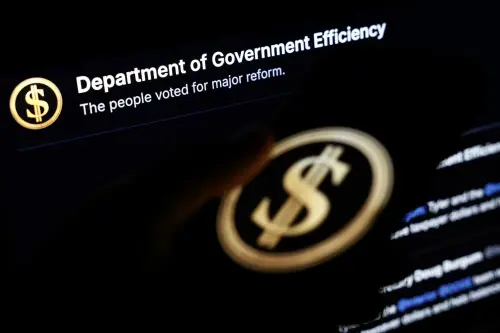Last month the McCain campaign released an ad labelling Senator Barack Obama “the biggest celebrity in the world” and featuring footage of his speech in Berlin next to images of Britney Spears and Paris Hilton.
Certainly, famous people are giving Obama a whole lot of love. The music video Yes We Can, created by will.i.am of the Black Eyed Peas, generated early sparkle for the candidate. A new video will be released soon featuring Oprah, Cyndi, Beyonce and other individuals for whom a single name suffices. Pick up a magazine in your dentist’s waiting room and you will see pictures of Kirsten Dunst wearing a campaign button. J. Lo, Jay-Z, P. Diddy and Q-Tip are all cool with Obama.
Ben Affleck, Susan Sarandon, Quentin Tarantino and countless others from La La Land will be in Denver for next week’s Democratic National Convention, which may be favoured with performances by Kanye West, Usher and Wyclef Jean. The Grateful Dead have risen to play a gig called Deadheads For Obama. Ed Norton is making a documentary about the candidate, and Sheryl Crow believes “we need to stop with the cynicism and really manifest ourselves as being a part of what’s happening in this country”. In the ultimate celebrity endorsement, Pamela Anderson posed in front of a giant Obama portrait while promoting her new reality TV show.
Yet the senator himself is refreshingly ambivalent about celebrity. Admittedly, he is said to be pals with George Clooney. Yes, he is raising money at LA fund-raisers attended by all the usual suspects. (At one gala, Dennis Quaid referred to him, with customary Hollywood restraint, as “the Superman for everyone”.)
Yet the indications are that celebrities may not receive the respect from the Obama organisation to which they became accustomed in the salad days of the Clinton administration.
The strongest evidence for this is the slapdown Obama delivered to Scarlett Johansson last month when she gushed about their association: “You’d imagine that someone like the senator who is constantly travelling and constantly ‘on’ – how can he return these personal emails? … I feel like I’m supporting someone, and having a personal dialogue with them, and it’s amazing.”
Speaking to reporters on the campaign trail, Obama denied that the actress had his personal email address or that they had enjoyed a long correspondence. “I write saying, ‘Thank you, Scarlett, for doing what you do,’ and suddenly we have this email relationship.” At a time when nearly everyone pays homage to celebrity, his response was encouraging.
Celebrities’ attention can turn the smartest political head. Everyone likes to be liked, especially by people with holiday homes in the Hamptons. And in this era of relentless trivialisation, it’s not enough to holiday or party with celebs: you have to caucus with them, too. Barbra Streisand and her expensive political consultants demand that politicians pay lip service to her views, such as they are.
It is said, of course, that “celebrities without borders” reflect their light onto important causes which would otherwise be ignored. But there is zero evidence that celebrity activism produces any serious change, at least the kind we can believe in.
Part of the reason is that the phenomenon is inherently ridiculous. Last year, for instance, Brad Pitt claimed that being in the room with his partner, Angelina Jolie, and Daniel Pearl’s widow, Marianne, is “like sitting down with Roosevelt and Churchill – only much better-looking.” Interviewed on the red carpet at the Cannes Film Festival (where else?), Sharon Stone shrugged off the Sichuan earthquake – which is thought to have killed 70,000 people and left millions homeless – as the product of bad karma caused by the Chinese “not being nice to the Dalai Lama, who is a good friend of mine”.
As messengers on issues such as poverty or genocide, celebrities are handicapped by the narcissism of their lifestyle, which is matched by the superficiality of the rest of us in following their movements so obsessively. In fact, solving these kinds of urgent global problems requires exactly the opposite of celebrity worship: namely, that the world turn away from the rich, famous and beautiful and towards the poor, invisible and unfortunate.
The simplicity of Obama’s personal bearing, his preternatural self-confidence and his determination to shield his daughters from the media spotlight all suggest that he is capable of escaping the celebrity vortex. He gets that he is already much bigger than any of Hollywood’s leading men – and that each time a statesman indulges a soap star, spokesmodel or starlet, he gives away a little bit of himself.
Should John McCain’s attacks fail and Obama be elected president, then, there’s a good chance he will keep it real, and serve as commander-in-chief, not celebrity-in-chief. Celebs may be left to console themselves by singing another classic tune by will.i.am: Where Is The Love?
The Brookings Institution is committed to quality, independence, and impact.
We are supported by a diverse array of funders. In line with our values and policies, each Brookings publication represents the sole views of its author(s).



Commentary
Op-edStar Power Fades When it Comes to Politics
August 21, 2008